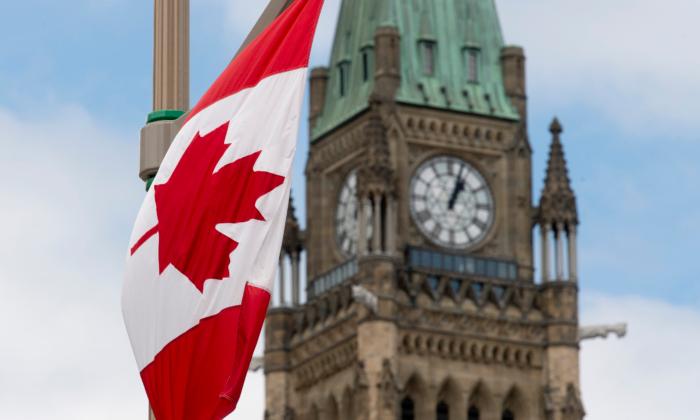Canada is ranked among the most miserable when it comes to how governments have responded to the COVID-19 and the economic consequences that followed from those decisions, a study indicates.
The study released on Monday by think tank Macdonald-Laurier Institute (MLI) found that the Canadian government’s performance amid the pandemic fares “well below average, with particularly poor results in our public health response and managing the economic impact.”
Overall, Canada ranks 11th out of 15 countries of similar economies that the MLI selected for comparison, using a “misery index” that measures the performance of the governments in protecting the health and prosperity of their citizens during the pandemic. Countries with higher scores indicate higher levels of misery.
The ranking is derived from data collected across three main categories in the index that capture the “misery” caused by the CCP (Chinese Communist Party) virus, government response, and economic impact, based on 16 metrics including mortality rates, number of infections, lockdown stringency, vaccination rates, unemployment, public debt, and more. For each metric, a score from 0 to 100 is allocated depending on the performance.
Specific to pandemic response, Canada is placed at 14th with a total score of 65.7, only better than Netherlands who takes the last position at 74.54 points. As for economic impact, Canada is ranked 13th, which the study suggests that “this country’s inefficient approach to the virus was more costly than in other countries.” In this category, Norway, Sweden, and Switzerland took the top three spots respectively.
But when it comes to curbing the virus misery, Canada fares better at six out of the 15 countries measured, just behind Germany.
“While Canada was spared the worst ravages of the disease, our response to it has brought significant misery, largely attributable to quite strong restrictions in behaviour and a lagging vaccination program,” wrote author Richard Audas, professor of Health Statistics and Economics at the University of Newfoundland.
The study noted that Canada’s vaccine program is lackluster compared with peer countries, particularly the United States and the UK as the country has been slow in rolling out the vaccines. Also, the author said that although the restrictive measures do work, “a more targeted approach may have yielded comparable results without the concomitant misery brought on by a reduction in our personal freedoms.”
“The economic misery has been severe, and the projections are that Canadian taxpayers will be paying this bill for some time to come,” Audas added.
This has come about with the continuous rise in unemployment in Canada through 2020, with the government borrowing heavily to sustain the economy that increases the country’s debt as a percentage of GDP, which the study expects to rise further through 2022.
Norway has the best ranking based on the misery index overall. New Zealand came in second, followed by Australia.





